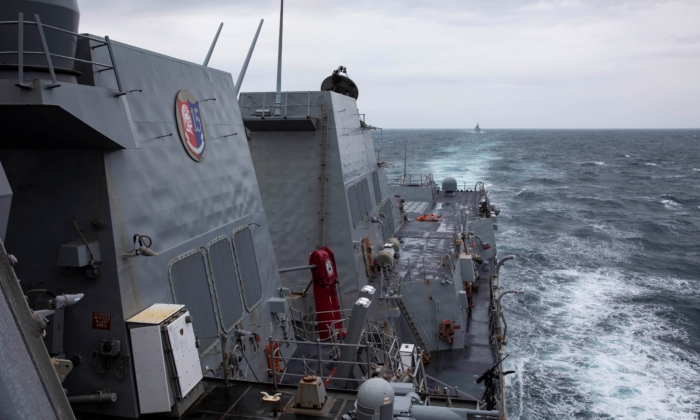The U.S. Navy’s 7th Fleet reiterated that the military operates in accordance with international law, stating, “The United States military flies, sails, and operates anywhere international law allows.” The fleet reported that the USS Ralph Johnson passed through the Taiwan Strait on Aug. 22, drawing a warning from China. The Chinese military has been conducting exercises in the strait and has been vocal about its intentions regarding Taiwan. The 7th Fleet emphasized that the transit was routine and lawful, as it occurred beyond any coastal state’s territorial sea. The fleet defended the right of all nations to navigate freely in international waters. Despite diplomatic protests and international backlash, the Chinese Communist Party continues to assert territorial claims that contradict international law.
The CCP’s response to the USS Ralph Johnson’s passage through the Taiwan Strait mirrored its reactions to previous incidents in the South China Sea, accusing other nations of provoking China. The Chinese military labeled the sailing as “public hype” and deployed naval and air forces to monitor the U.S. ship. The CCP vowed to uphold national sovereignty and security in response to such actions. The U.S. State Department has called for de-escalation following military provocations by China in the region. The United States, along with other countries like Canada and Germany, has demonstrated its commitment to freedom of navigation in the Taiwan Strait through naval operations.
The importance of the South China Sea and the Taiwan Strait as key trade routes cannot be overstated. A significant portion of global trade passes through these waters, making them strategically vital. As the CCP asserts its control over these areas, tensions continue to rise, with implications for international security and trade. The Chinese military’s aggressive posture and the enactment of new domestic laws further complicate the situation, raising concerns about potential conflicts in the region. Please rewrite this sentence.
Source link





